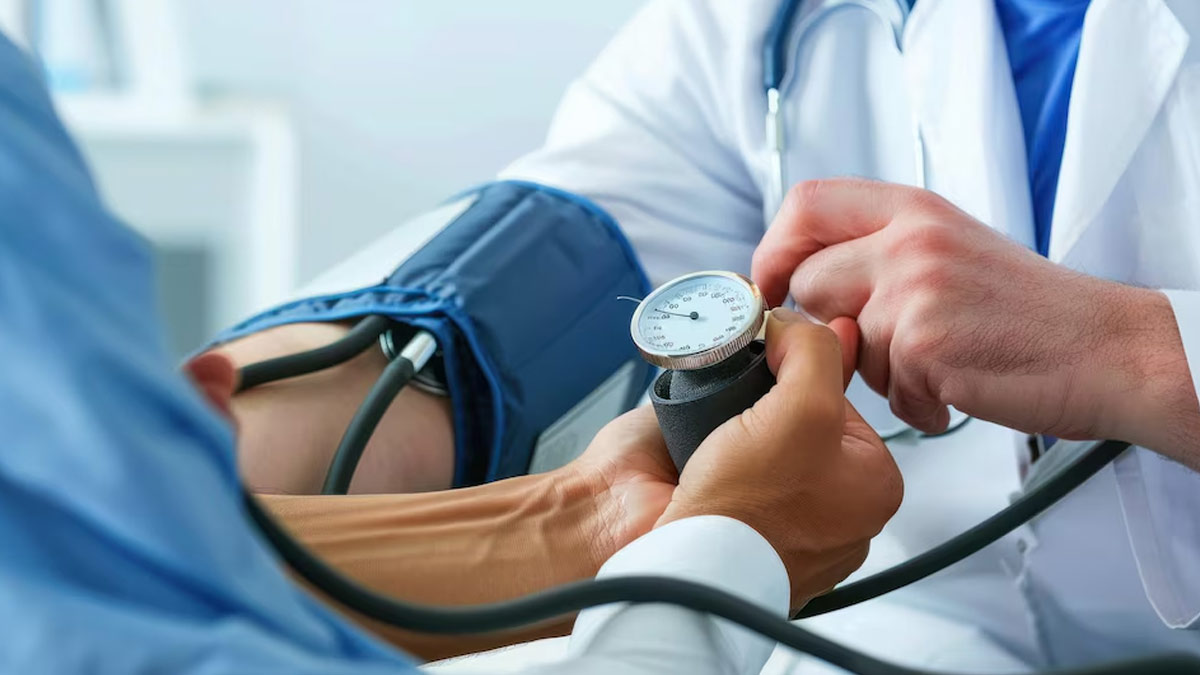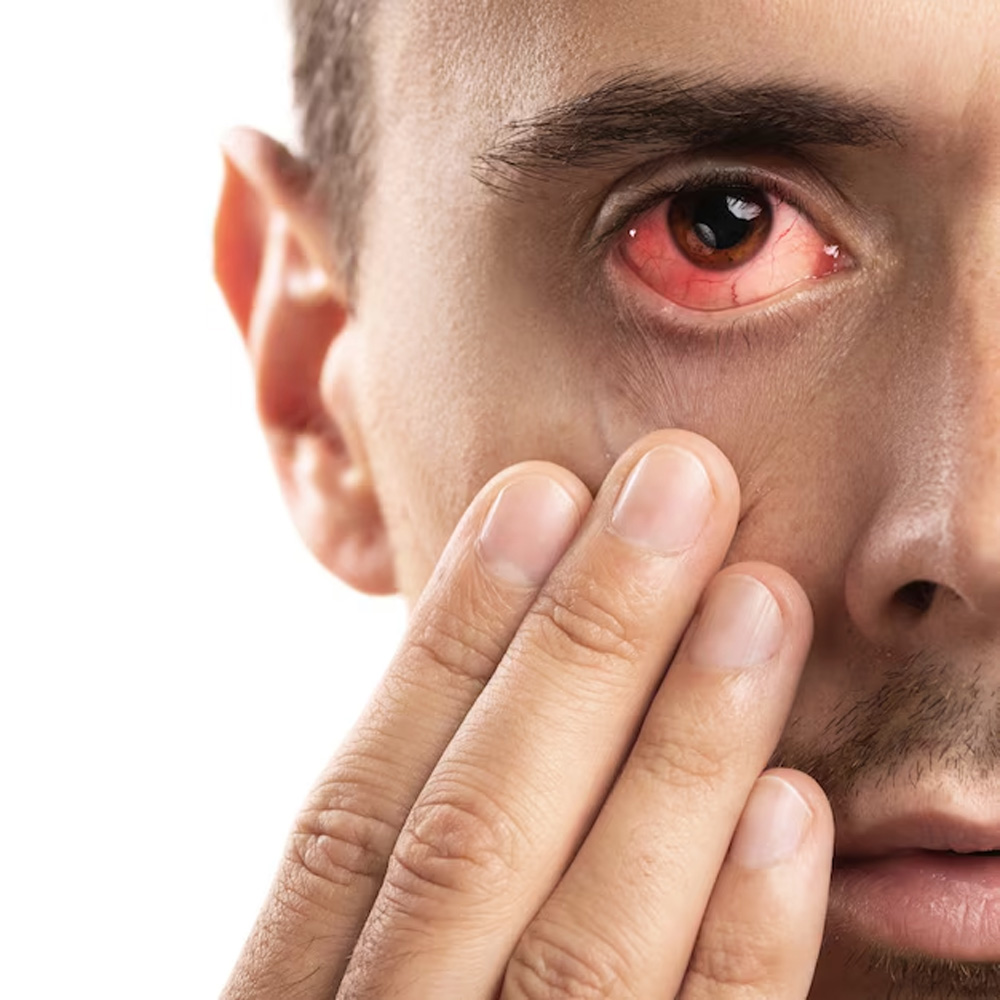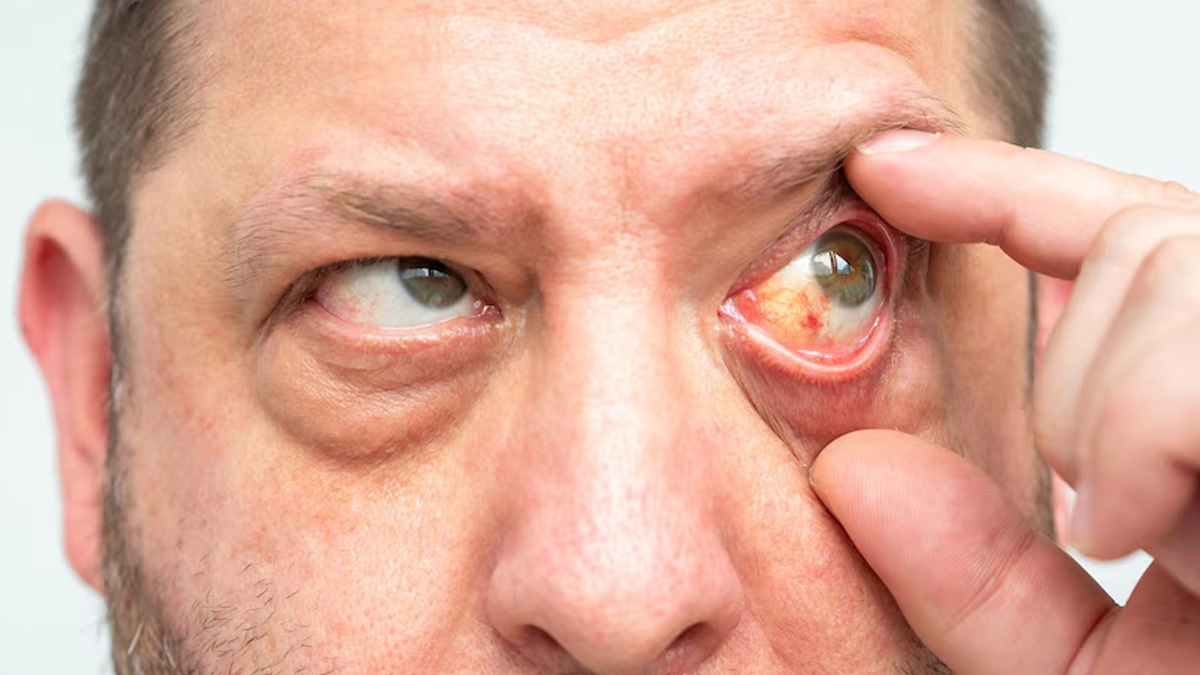
Hypertension, or high blood pressure, is a common yet often undiagnosed condition that affects nearly one billion people globally. As one of the leading risk factors for heart disease, hypertension often goes unnoticed until it's too late. While lifestyle changes and regular check-ups are critical, studies suggest that the eyes might offer early clues to this silent condition.
Table of Content:-
To understand how eyes can warn you of hypertension, OnlyMyHealth team interacted with Dr Kiran Dhake, MBBS, DMRE, Corporate Wellness Physician and Imaging Specialist, Mumbai.
Understanding Hypertension and Its Challenges
“Hypertension is an unhealthy elevation of blood pressure. It affects nearly one billion people worldwide and is considered one of the major risk factors for heart disease globally,” says Dr Kiran Dhake. “In simple terms, high blood pressure occurs when the blood pushes against the walls of the blood vessels with greater force than normal.” He highlights that despite its prevalence, hypertension often goes asymptomatic, making it difficult to detect without regular medical checks.
Hypertension silently damages the blood vessels, leading to complications such as cardiovascular disease, stroke, and heart attack. The constant elevated pressure gradually impairs blood flow to various parts of the body, including the eyes, which can manifest in early warning signs that healthcare professionals might miss without routine screenings.
How Eyes Reflect Blood Pressure Issues

The link between the eyes and blood pressure lies in the tiny blood vessels within the retina, the light-sensitive tissue at the back of the eye. “The major risk factor for retinal involvement is the duration of elevated blood pressure,” explains Dr Dhake. Persistent high pressure causes retinal blood vessels to tighten and narrow, disrupting the blood flow and potentially leading to symptoms such as blurred vision, double vision, or even severe eye bleeding due to vessel damage.
Studies suggest that changes in the eye, like retinal microvascular abnormalities, could serve as biomarkers for hypertension. Research found that hypertensive retinopathy—characterised by the narrowing of retinal arteries and the appearance of haemorrhages or microaneurysms—was significantly associated with elevated blood pressure.
Eye Symptoms Linked to Hypertension
According to Dr Dhake, several eye symptoms could point to elevated blood pressure, including:
Blurred vision: A common complaint, which may result from damage to the retina.
Double vision: This can occur if hypertension affects the blood vessels that supply the nerves controlling eye movement.
Complete or partial vision loss: Sudden vision loss could be due to retinal artery occlusion, a serious condition linked to high blood pressure.
Headache and eye pain: These can indicate elevated pressure within the eye or even bleeding.

However, Dr Dhake cautions that these symptoms alone are not definitive indicators of hypertension. Other factors like high-salt diets, obesity, stress, tobacco use, alcohol consumption, family history, and ethnicity can also contribute to eye-related symptoms.
Also read: Hypertension: Ayurvedic Remedies To Manage High Blood Pressure
Eye Exams: A Preventive Measure
Regular eye examinations can play a crucial role in identifying hypertension early, especially in patients with longstanding high blood pressure or diabetes. Dr Dhake advises that patients should undergo retinal check-ups and scans every six months. “Early recognition of eye signs by healthcare professionals can lead to timely intervention, potentially preventing severe complications of high blood pressure, such as heart disease, stroke, and vision loss.”
Conclusion
While it is not entirely conclusive that eye symptoms alone can predict hypertension, they can provide valuable insights into one's cardiovascular health. As Dr Dhake points out, “The eyes do much more than simply see—they can also uncover hidden dangers within the body, making them an invaluable asset in the battle against hypertension.”
By recognising the early signs, such as retinal abnormalities, healthcare providers can better guide patients towards preventive measures, ultimately reducing the burden of hypertension and its associated risks. Therefore, maintaining regular eye exams can be as critical as monitoring blood pressure in managing overall health.
Also watch this video
Read Next
Saina Nehwal Hints at Retirement Due to Arthritis: How the Condition Is Impacting Young People
How we keep this article up to date:
We work with experts and keep a close eye on the latest in health and wellness. Whenever there is a new research or helpful information, we update our articles with accurate and useful advice.
Current Version
